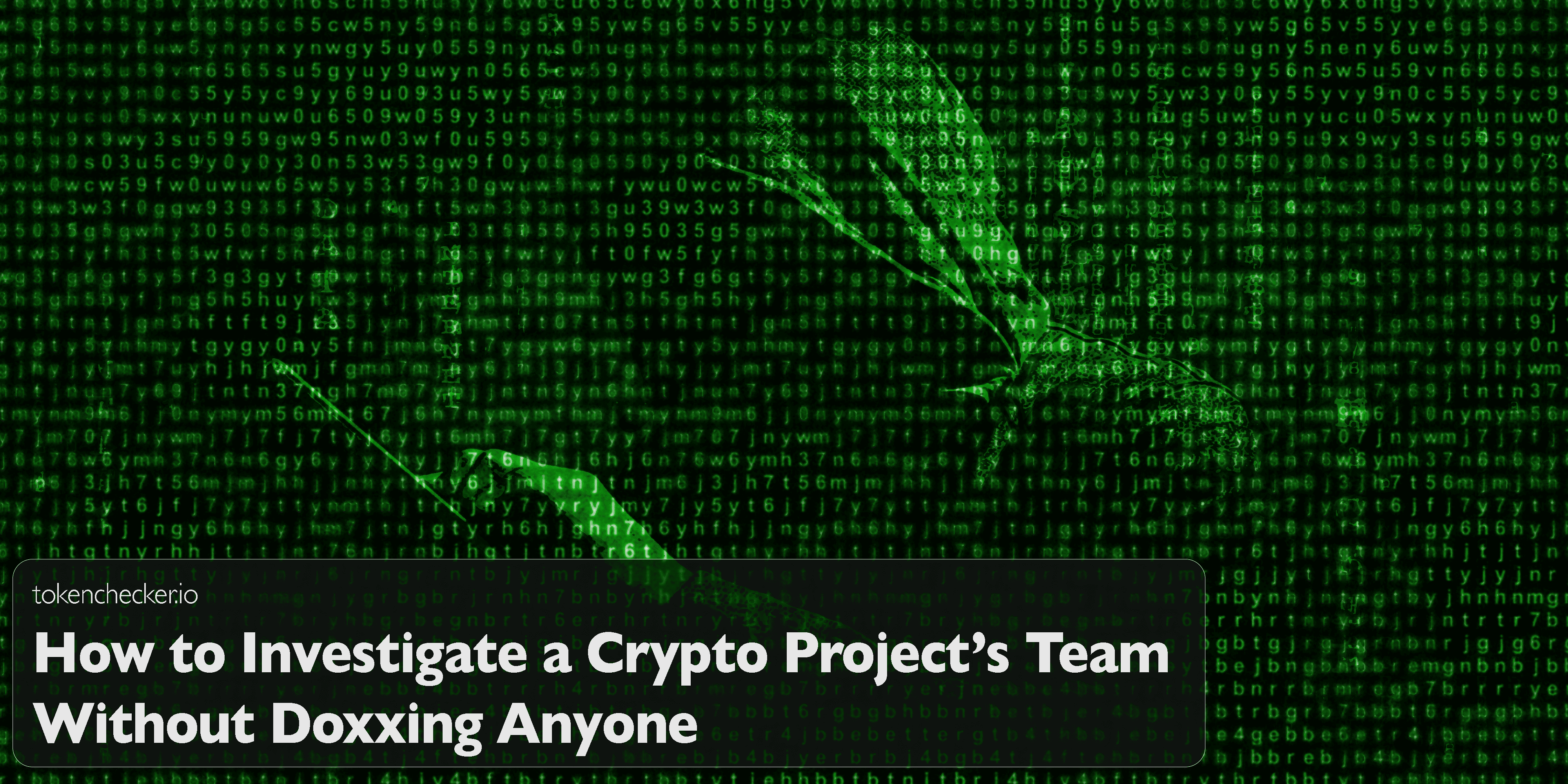
How to Investigate a Crypto Project’s Team Without Doxxing Anyone
DYOR doesn’t mean turning into a private investigator. But let’s be real—when a project hides behind avatars and Discord handles, you still need to know who you’re dealing with.
So how do you investigate a crypto team without crossing the line?
You don’t need names. You don’t need faces. What you need is behavior—on-chain, off-chain, and everything in between. This is how to do ethical team research without doxxing anyone… and still protect yourself. A lack of team transparency is a major red flag.
Step One: Start With Their Public Work
No one builds in a vacuum. Even anonymous teams leave trails.
Look for:
- GitHub commits: Have they contributed to other projects?
- Whitepaper authorship: Is it recycled or clearly written by insiders? Many projects have no documentation at all.
- Forum presence: Are they posting on Reddit, BitcoinTalk, or Stack Overflow?
- Past mentions: Are they tied to earlier projects—good or bad?
You’re not digging for legal names. You’re connecting digital behavior to see if it adds up or falls apart.
Are They Building or Just Talking?
Some teams are full of promises but empty on delivery. Others quietly build and ship. You can tell the difference by watching the output.
Check:
- Has the roadmap been updated with real milestones?
- Are testnets live? Contracts verified? dApps in beta?
- Are smart contract repos active or just forks of other projects?
An anonymous team that ships consistently earns more trust than a doxxed team that disappears after launch.
Cross-Check Wallet Behavior With Project Claims
Let’s say a dev says they’re not holding any tokens. But their wallet is receiving early LP distributions and dumping on spikes. You can verify that.
Use Etherscan or tokenchecker.io to:
- Trace wallet creation and links to the deployer
- Track when they buy, sell, or send
- Compare activity to what’s being said in chats or announcements
This isn’t doxxing—it’s accountability. You’re checking if their wallets match their words. The behavior of developer wallets is a key indicator of a project's health.
How They Communicate Tells You Everything
Even when people are anonymous, their tone, consistency, and behavior in public channels say a lot.
Look for:
- Do they show up regularly and respond to questions?
- Are they open about setbacks or do they vanish when things get rough?
- Do they welcome hard questions or mute everyone who doubts?
A team that’s quiet, erratic, or too defensive is often hiding more than their name.
Analyze Reputation Without Digging Personal Info
You don’t need to Google someone’s house to assess their credibility. Instead:
- Search Discord and Telegram history (use advanced search)
- Look for Twitter cross-posts or project overlaps
- See if they worked on any GitHub repos that match similar wallet patterns
- Check how often they reuse avatars, usernames, or phrasing
Over time, the puzzle pieces form a pattern. If it looks clean—great. If it smells like someone who rugged three other tokens last year? That’s all you need to know.
Use Tools, Not Tactics
There’s a line between smart research and unethical doxxing. Don’t cross it.
Stick to tools that reveal behavior, not identity:
- tokenchecker.io: Flags wallet red flags, mint permissions, creator trades
- DeBank: Wallet profile explorer without personal data
- GitHub: Commit history and repo timelines
- Telegram Scrapers: Public message monitoring
- Smart Contract Trackers: For live interaction logs
Focus on what they do, not who they are. The blockchain already tells the truth.
Why This Matters (Even for “Legit” Teams)
An anonymous team that’s active, transparent, and consistent is better than a doxxed team that’s shady, reactive, or ghosted.
But if a team is anonymous and shows signs of hiding wallet activity, rugging liquidity, or avoiding accountability?
That’s not privacy. That’s setup for disaster.
You don’t need to name them. Just avoid them.
Final Thoughts
You can do serious due diligence without being invasive. Crypto was built on privacy—but not on blind trust.
Look at what teams ship. Watch how they show up. Track what their wallets are doing. And use tools like tokenchecker.io to highlight what they’re not telling you.
DYOR doesn’t mean finding someone’s face. It means finding the truth.